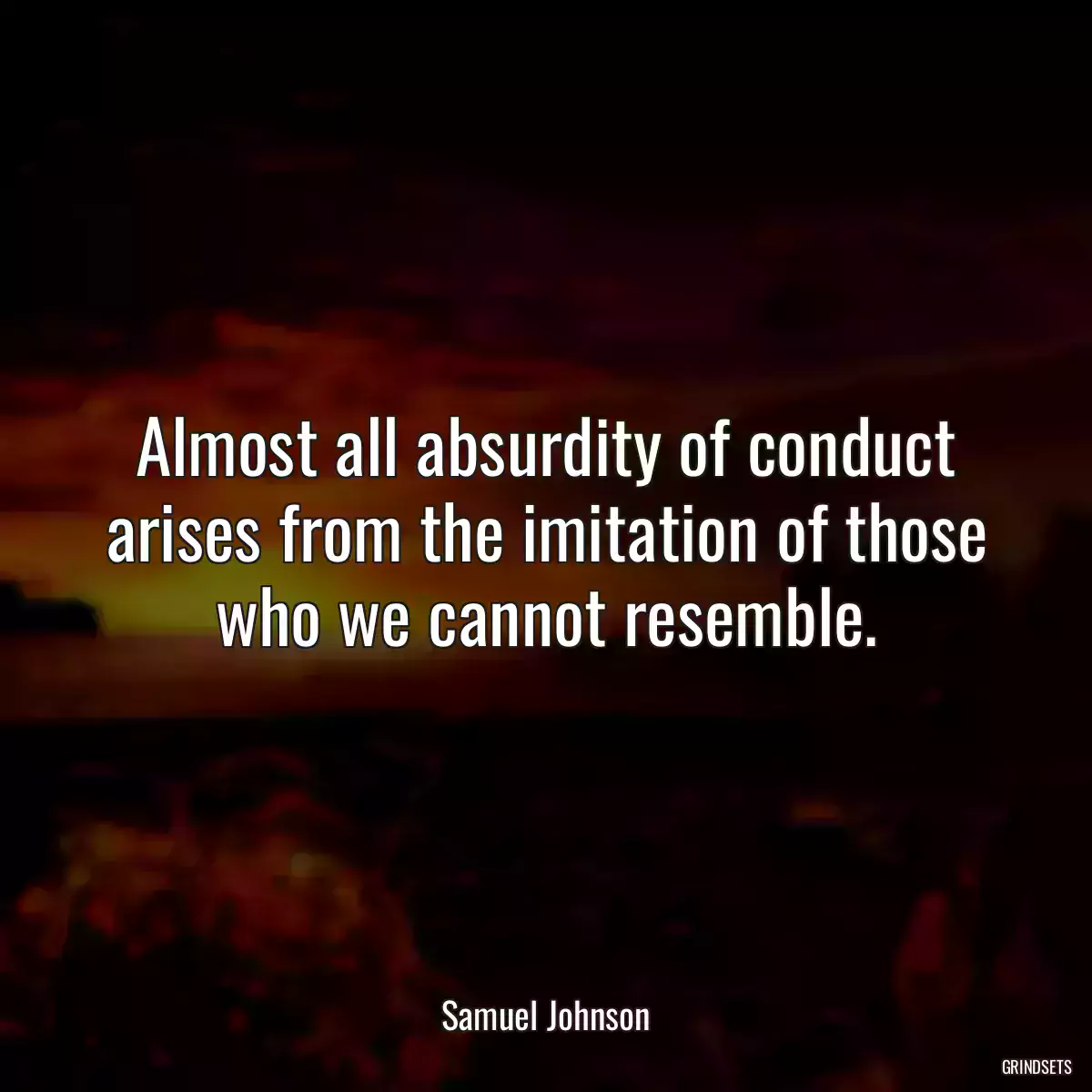
Quotes Samuel Johnson - page 3
Find dozens of Samuel Johnson with images to copy and share.

Even those to whom Providence has allotted greater strength of understanding, can expect only to improve a single science. In every other part of learning, they must be content to follow opinions, which they are not able to examine; and, even in that which they claim as peculiarly their own, can seldom add more than some small particle of knowledge, to the hereditary stock devolved to them from ancient times, the collective labour of a thousand intellects.
One of the aged greatest miseries is that they cannot easily find a companion able to share the memories of the past.
The present time is seldom able to fill desire or imagination with immediate enjoyment, and we are forced to supply its deficiencies by recollection or anticipation.
You may also like
I have always considered a clergyman as the father of a larger family than he is able to maintain.
I am not able to instruct you. I can only tell that I have chosen wrong. I have passed my time in study without experience; in the attainment of sciences which can, for the most part, be but remotely useful to mankind. I have purchased knowledge at the expense of all the common comforts of life: I have missed the endearing elegance of female friendship, and the happy commerce of domestic tenderness.
...a man estimable for his learning, amiable for his life, and venerable for his piety. Arbuthnot was a man of great comprehension, skilful in his profession, versed in the sciences, acquainted with ancient literature, and able to animate his mass of knowledge by a bright and active imagination; a scholar with great brilliance of wit; a wit who, in the crowd of life, retained and discovered a noble ardour of religious zeal.
Order is a lovely nymph, the child of Beauty and Wisdom; her attendants are Comfort, Neatness, and Activity; her abode is the valley of happiness: she is always to be found when sought for, and never appears so lovely as when contrasted with her opponent, Disorder.
There lurks, perhaps, in every human heart a desire of distinction, which inclines every man first to hope, and then to believe, that Nature has given him something peculiar to himself.

Authors and lovers always suffer some infatuation, from which only absence can set them free.
The joy of life is variety; the tenderest love requires to be rekindled by intervals of absence.
Many of our miseries are merely comparative: we are often made unhappy, not by the presence of any real evil, but by the absence of some fictitious good; of something which is not required by any real want of nature, which has not in itself any power of gratification, and which neither reason nor fancy would have prompted us to wish, did we not see it in the possession of others.
Friendship, like love, is destroyed by long absence, though it may be increased by short intermissions. What we have missed long enough to want it, we value more when it is regained; but that which has been lost till it is forgotten will be found at last with little gladness, and with still less if a substitute has supplied the place.
Abstinence is as easy to me as temperance would be difficult.
To set the mind above the appetites is the end of abstinence, which one of the Fathers observes to be not a virtue, but the groundwork of virtue.
By forbearing to do what may innocently be done, we may add hourly new vigor to resolution.
Tea's proper use is to amuse the idle, and relax the studious, and dilute the full meals of those who cannot use exercise, and will not use abstinence.
You may also like

It is not difficult to conceive, however, that for many reasons a man writes much better than he lives. For without entering into refined speculations, it may be shown much easier to design than to perform. A man proposes his schemes of life in a state of abstraction and disengagement, exempt from the enticements of hope, the solicitations of affection, the importunities of appetite, or the depressions of fear.
Nothing is more common than for men to make partial and absurd distinctions between vices of equal enormity, and to observe some of the divine commands with great scrupulousness, while they violate others, equally important, without any concern, or the least apparent conciousness of guilt. Alas, it is only wisdom which perceives this tragedy.